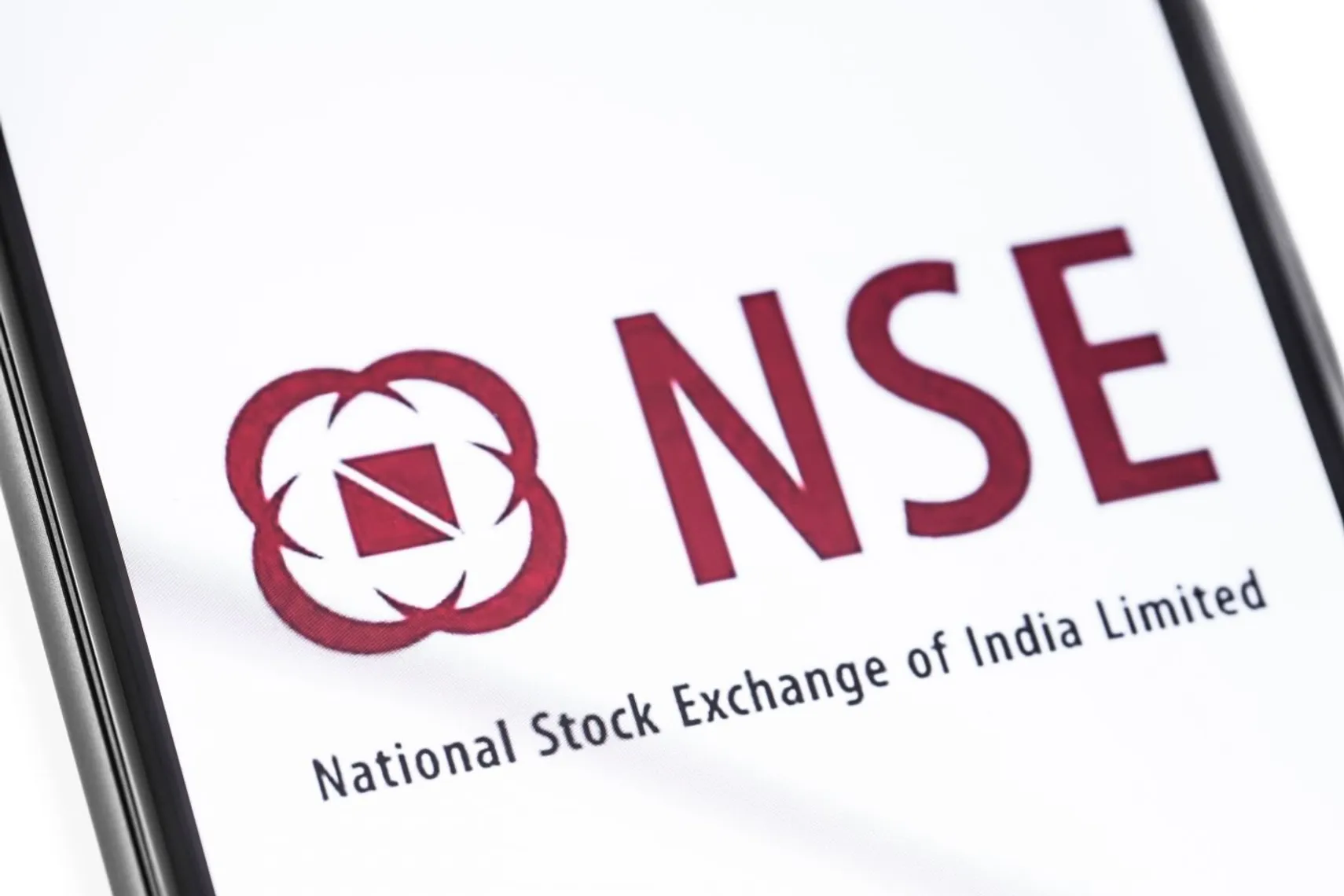How overseas investors can access the NSE Nifty 50 (India 50) Index
Learn how to access the NSE Nifty 50 Index (India 50) as an overseas investor – via ETFs, mutual funds, CFDs and derivatives.
Nifty 50 (India 50) index performance
As of 6 November 2025, the India 50 index closed at 25,509.70, down 0.34% for the day. The decline was led by weakness in metals and media, while Asian Paints and Britannia gained following strong quarterly earnings. Despite short-term fluctuations, the index remains one of Asia’s better-performing equity benchmarks, supported by steady corporate profitability and broad sector diversification.
Over the past 20 years, the Nifty 50 has delivered compound annual returns of around 14.18%, compared with 12.38% for gold over the same period. Past performance is not a reliable indicator of future results.
Past performance is not a reliable indicator of future results.
Composition and weighting
The Nifty 50 represents large-cap companies across India’s major sectors. Reliance Industries remains the largest constituent, accounting for roughly 10% of the index’s market capitalisation. Infosys, Tata Consultancy Services, HDFC Bank and ICICI Bank are also among the top components, with financials representing about 35% of the index weight.
The index is calculated using a free-float market-capitalisation-weighted methodology, which considers only shares available for public trading. Its base date is 3 November 1995, set at 1,000 points.
It is published in four currencies – Indian rupee (INR), US dollar (USD), Australian dollar (AUD) and Canadian dollar (CAD) – providing broader accessibility for global investors.
India’s blue chips in regional context
According to data from the World Federation of Exchanges, the NSE has been the world’s largest equity-derivatives exchange by number of contracts traded for three consecutive years. As of November 2025, the Nifty 50’s total market capitalisation stands at around $1.7 trillion (USD).
Indian blue-chip companies – including Bajaj Auto, HCL Technologies, Bharti Airtel, Avenue Supermarts and Pidilite Industries – are recognised for resilient fundamentals, stable returns on equity and regular dividend payouts. These attributes have helped position the Nifty 50 among Asia’s leading indices for long-term performance.
Access through offshore instruments
Foreign investors have several routes to gain exposure to India’s benchmark index:
1. Exchange-traded funds (ETFs)
Offshore retail investors can access ETFs that track the Nifty 50, such as:
| Name | Expense ratio | Replication method | Provider | AUM (as of 2025) |
|---|---|---|---|---|
| First Trust India NIFTY 50 Equal Weight ETF | 0.80% | Equal weight | First Trust | $188.5m USD |
| iShares India 50 ETF (INDY) | 0.65% | Market cap weighted | BlackRock | $658m USD |
| Xtrackers Nifty 50 Swap UCITS ETF 1C | 0.85% | Synthetic (swap-based) | DWS / Xtrackers | £145m GBP |
2. Futures and derivatives
GIFT Nifty derivatives (formerly SGX Nifty) trade in US dollars and provide extended market hours, allowing global participants to hedge or gain exposure to movements in Indian equities. These contracts mirror the performance of the NSE Nifty 50 Index, offering a way to respond to overnight developments in global markets or regional events.
Beyond futures trading, derivative-based instruments, such as contracts for difference (CFDs), enable traders to speculate on the price movement of related products without owning the underlying asset. For example, traders can access CFDs on ETFs that track the Nifty 50, including the First Trust India NIFTY 50 Equal Weight ETF and the iShares India 50 ETF (INDY).
This approach offers flexibility and exposure to India’s benchmark index through regulated instruments, but it’s important to remember that CFDs are traded on margin – leverage amplifies both profits and losses.
3. Mutual funds
Several India-based mutual funds replicate the Nifty 50 directly, including:
- Nippon India Index Fund – Nifty Plan
- Franklin India Index Fund – NSE Nifty
- Mirae Asset Nifty 50 ETF
- HDFC Nifty 50 Index Fund
- Tata Nifty 50 Index Fund
Expense ratios typically range from 0.05% to 1.08%, depending on structure and management approach.
4. Direct investment
Qualified Foreign Investors (QFIs) and Foreign Portfolio Investors (FPIs) from over 45 countries may apply to invest directly in Indian equities and index funds, subject to local regulatory requirements.
Summary
Create an account Open a demo account
FAQ
What is the NSE Nifty 50 Index?
The NSE Nifty 50 Index is India’s primary equity benchmark, representing 50 large-cap companies listed on the National Stock Exchange (NSE). It provides a comprehensive measure of the Indian equity market, covering major sectors such as financials, energy, information technology and consumer goods.
How is the Nifty 50 Index calculated?
The index is calculated using a free-float market capitalisation-weighted methodology, which includes only shares available for public trading. This ensures the index accurately reflects market participation and automatically adjusts to changes in company valuations or share availability.
Why is the Nifty 50 important to investors?
The Nifty 50 serves as a key benchmark for India’s equity markets, often used to track market performance or compare investment outcomes. It represents diverse, well-established companies, providing a broad view of India’s corporate landscape. However, as with all market indices, its value can rise or fall in response to market conditions, and past performance is not a reliable indicator of future results.
How can international investors access the Nifty 50?
International investors can access the Nifty 50 through exchange-traded funds (ETFs), mutual funds, or futures and options based on the index. Some may also invest directly via Qualified Foreign Investor (QFI) or Foreign Portfolio Investor (FPI) programmes, subject to local regulations and eligibility criteria. Each route offers different levels of access, cost and market exposure.
What factors can influence the Nifty 50’s performance?
The index’s performance can be influenced by corporate earnings, macroeconomic data, interest rate movements, currency fluctuations, and global market sentiment. Sector trends – particularly in banking, technology and energy – can also play a role. Like all market instruments, the index is subject to volatility, and returns are not guaranteed.